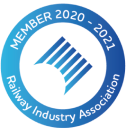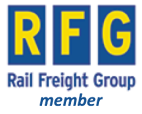Diesel engines emissions reduction research
Confidential client
Crucial research into the reduction of diesel emissions
Overview
Emissions from diesel engines are an increasing cause for concern.
The British Government has recently announced that legislation to prevent sales of new diesel road vehicle cars will be brought into effect from 2042. Currently only 3% of transport emissions are generated by rail vehicles (excluding emissions from the generation at source of electricity for electric trains). However, as legislation and improvements in road and air vehicle technology drive emissions reductions, so the relative percentage contributed by rail vehicles will rise and the focus of emissions controls will swing to include rail vehicles.
The emissions regulations currently enforceable for Non-road Mobile Machinery (of which self-propelled railway vehicles are a part) are contained in EC Directive 97/68/EC (emission of gaseous and particulate pollutants from internal combustion engines to be installed in non-road mobile machinery) adopted in 1997 (and subsequent amendments), and enshrined into UK Law by the Non-Road Mobile Machinery (Emission of Gaseous and Particulate Pollutants) Regulations 1999 (Statutory Instrument No. 1999/1053). The directive sets out the current diesel emissions category for “railcars” (i.e. diesel multiple units) and locomotives as Stage IIIB and mandates the adoption of Stage V in 2021. In contrast road transport is already required to comply with Stage VI.
In addition, the reduction in air quality in stations is becoming increasingly improtant to customer and nearby resident satisfaction. The geographic location or local environmental conditions for some stations can make the air quality particularly poor. These stations include London Kings Cross, London Marylebone, Edinburgh Waverley, and Birmingham New Street.
- Investigating new technology
- Matrix of options based on practicalities
- Recommendation of technology for trial

Our client's challenge
IPEX’s client, a train operator owning group, sought research to be carried out into the options for reducing emissions from its diesel-engined fleets both during operation (including turnaround at stations) and during maintenance activities, and for improving air quality at various stations across its networks.
These options could include diesel technology including use of alternative fuels and shutting down of engines when not required, particularly in terminus covered stations, and use of alternative propulsion sources such as on-board energy storage devices.
The objective of the research was to develop a shortlist to be taken forward for potential trial with funding both from the client and also from industry bodies.
Our response
IPEX examined the technology available from three sources: existing on-train solutions; existing non-train solutions; and other technology solutions.
On-train solutions included reduction methods such as shutting down diesel engines where possible, filtration, and alternative fuels. Non-train solutions considered technology currently used in other arenas such as the automotive industry to assess innovations for potential transfer to a railway environment. Opportunities for innovative solutions such as those commonly employed in the light rail sector such as hydrogen fuel cell and on-board energy recapture and storage were also examined. This was completed through desktop research and exploratory ‘solution hunts’ with technology providers and the client’s own engineering teams.
The technologies were then shortlisted based on the practicality of their implementation (technical, timescale of implementation, and implementation price). This practicality sort produced a matrix of options dependent on fleet, route, and optimum improvement (reduction in cost, reduction in emissions, or reduction in station pollutants). This matrix was used to recommend technologies for trial for each of the client’s fleet types.
The value to the client
IPEX’s report collated all of the research performed as well as some previous work by the client’s engineering teams into a single report, enabling sound business-based decision-making to be undertaken both at the owning group level and then cascaded down to the individual operators.
The client has reported that the research has led to trials being undertaken on a number of its fleets to evaluate the practicalities of the technologies, the emissions reduction and air quality improvements attainable, and the cost savings achievable.




